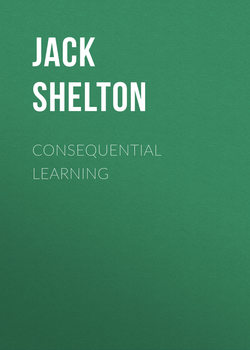Читать книгу Consequential Learning - Jack Shelton - Страница 6
На сайте Литреса книга снята с продажи.
Foreword
ОглавлениеDavid Mathews
Most books about education are implicitly books about politics. This one certainly is. Consequential Learning is about democratic politics, in which citizens derive their just power from what they make through collective decisions and actions. It is also about what my friend Robert McClintock at Columbia University calls “a place for study in a world of instruction.” The two are related. Learning is a quintessential democratic practice. Citizens must be capable of learning what has to be done to solve common problems because in a democracy we don’t allow any coercive authority to tell us what to do. Collective or civic learning ensures freedom.
I hope teachers and administrators will read what Jack Shelton has to say, but this is primarily a book for citizens. The book is about education, and education is about more than schooling. Education is accessible to people; they can all have some hand in it. Americans aren’t so sure about schooling because it seems to be a professional domain. Jack describes how the educational work of citizens can complement and reinforce schools. The message for overburdened, hardworking teachers and administrators is to seek out the natural allies in communities. They aren’t alone in the larger work of education.
The community is the natural setting for Consequential Learning. Jack remembers what is often forgotten these days: schools are more than marketplaces selling information to customers. They are community-maintaining institutions. That is especially so in small, rural communities. If the school closes, the community usually dies. Jack is well-known around the country for what he has to say about rural education. He explains why closing small schools may actually cost more than it saves. A closing affects the overall economy, not just a school board’s budget. When a school closes, the community loses a big chunk of the social capital that fuels growth, as economists have shown. Jack argues that schools can actually be engines for economic development in hard-pressed communities. Creative, entrepreneurial people have transformed areas like northwest Arkansas. Jack gives examples of schools that have fostered the same spirit of enterprise. Certainly the quality of community life is an asset in attracting new industry, and there again Jack cites what schools have done.
I got to know Jack when he was the United Methodist campus minister at the University of Alabama. He took his students to small Alabama communities where they worked with local citizens on educational, agricultural, health, and other projects. His work speaks to today’s concern about the current college generation’s understanding of citizenship. Jack’s students have been more than individuals providing services; they have learned what it means to be members of a community. I thought he was one of the best professors of applied democracy in the country; you’ll see why when he describes the Program for Rural Services and Research and its predecessor, the Student Coalition for Community and Health. The coalition fit well with the University of Alabama’s efforts to develop a College of Community Health Sciences that would draw from all its schools to combat the appalling lack of health care in a rural state. These student programs contributed significantly to the formation of the PACERS Cooperative, which I hope will become an enduring civic structure combining democracy and public education.
The campus projects took on some of the major problems we are now confronting in public education, such as the citizenry’s declining sense of ownership of the schools, reflected in the perception that “these aren’t our schools.” When ownership declines, so does a sense of collective responsibility. PACERS has fought this trend; the coalition sponsored projects in which citizens made things through their collective efforts and schools drew on these products of public work to enrich their curriculum. This work helped restore a sense of community ownership and responsibility. People are more inclined to take responsibility when their own handiwork is involved. My favorite examples are the aquaculture projects. In the small Alabama town of Florala, community members proudly provided a fishery that became a living laboratory for the sciences. In Loachapoka, citizens did the same thing when they joined forces to build a greenhouse for their school.
If your instincts tell you that a place teaches, you will find yourself in good company. The ability of a citizenry to make local settings available for instructional purposes is a demonstration of what “just folks” can do. Not everyone can teach algebra, but everyone can contribute to the education of young people. Everything from a creek running through town to the local newspapers have been used to create living laboratories.
Education is more than test scores, textbooks, and professional expertise. All of these have their place. But education is as much an enterprise of the soul as it is of the mind. And Jack Shelton reminds us of that on every page.
A native of Clarke County, Alabama, David Mathews is president of the Kettering Foundation. He previously served as president of the University of Alabama and as secretary of the U.S. Department of Health, Education, and Welfare.
